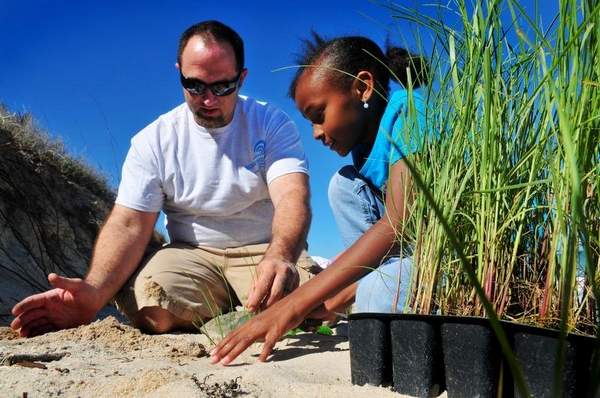Government Grants
Business Grants
Home Owner Programs
Federal Programs
About Us
Basinwide & Basin States Salinity Control Programs
The Colorado River Basin Salinity Control Program (Salinity Control Program) was designed to meet the objectives of the Colorado River Basin (Basin) Water Quality Standards.
These standards include a Plan of Implementation to limit further degradation of water quality in the Colorado River that provides water to southern California, Arizona, Nevada, and New Mexico.
The objective of the Salinity Control Program has been to minimize salt loading in the Colorado River system by seeking cost-effective regional solutions to the problem.
The Bureau of Reclamation solicits, ranks, and selects new Salinity Control Projects based on a competitive process open to the public.
Cooperative agreements are awarded with selected applicants.
Projects have typically involved converting unlined canals and ditches to pipelines located in the Upper Basin States of Utah, Colorado, New Mexico, and Wyoming to reduce seepage that picks up salt and carries it into the Colorado River system.
Reclamation also utilizes the services of state agencies in the states of Colorado, Utah, and Wyoming, to assist in funding cost-effective activities to reduce salinity in the Colorado River system.
These standards include a Plan of Implementation to limit further degradation of water quality in the Colorado River that provides water to southern California, Arizona, Nevada, and New Mexico.
The objective of the Salinity Control Program has been to minimize salt loading in the Colorado River system by seeking cost-effective regional solutions to the problem.
The Bureau of Reclamation solicits, ranks, and selects new Salinity Control Projects based on a competitive process open to the public.
Cooperative agreements are awarded with selected applicants.
Projects have typically involved converting unlined canals and ditches to pipelines located in the Upper Basin States of Utah, Colorado, New Mexico, and Wyoming to reduce seepage that picks up salt and carries it into the Colorado River system.
Reclamation also utilizes the services of state agencies in the states of Colorado, Utah, and Wyoming, to assist in funding cost-effective activities to reduce salinity in the Colorado River system.
Relevant Nonprofit Program Categories
Obtain Full Opportunity Text:
Susan Harwood FY 2011 Solicitation
Additional Information of Eligibility:
Basinwide Program: A legal entity that is the owner or operator of the features to be replaced and/or to be constructed and capable of contracting with Reclamation.
Basin States Program (BSP): A legal entity or individual that is owner or operator of the features to be replaced and/or to be constructed and capable of contracting with the state in which it is located - Utah, Colorado, or Wyoming.
Both: Propose projects that are located in the Colorado River Basin above the Hoover Dam.
Be responsive to the FOA requirements.
Only use proven technology.
Not be of a nature that creates undue financial risk for Reclamation.
Be in an area where salt load can be provided.
Provide sufficient pressure and appropriate velocity where topography enables it to allow for the future installations of high efficiency on-farm improvements (i.e.
sprinkler systems).
Full Opportunity Web Address:
Contact:
Agency Email Description:
Agency Email:
rpew@usbr.gov
Date Posted:
2017-08-04
Application Due Date:
2017-11-14
Archive Date:
2017-12-14
Social Entrepreneurship
Spotlight
When it Comes to Social Enterprises, Failure is the Best Platform for Innovation

In the world of social enterprises, failure is a cringe-worthy moment nobody wants to talk about. But, social entrepreneurs can benefit from their failures.

